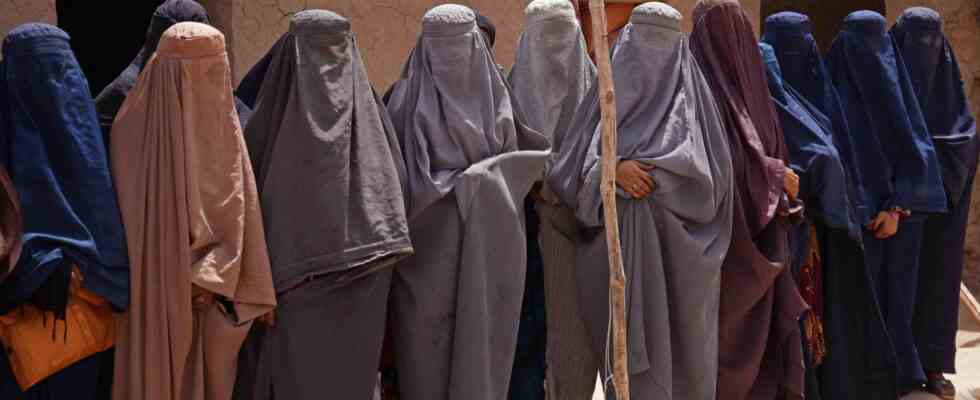comment
As of: 08/15/2022 6:36 p.m
The USA and the West as a whole bear responsibility for Afghanistan’s decline – and the Afghans themselves, opines Christopher Heinzle. But even if the West turned away in 2021, the country still deserves attention and support.
20 years of deployment in Afghanistan – ultimately to replace the Taliban with the Taliban. But which mistakes led to the decline of the country? Who was responsible? Not just the US-led West, but here lies the primary responsibility. Definitely, if you ask yourself why everything happened so quickly in the end.
US Presidents Donald Trump and Joe Biden were keen to withdraw their troops, not least because of the exorbitant cost of the military deployment. Get out of Afghanistan, no matter how, seemed the motto. Not only did the Americans hardly get anything in return when they promised the Taliban the withdrawal of all Western troops in 2020. No, Biden set a firm withdrawal date, the highly symbolic September 11 – 9/11. For the Taliban, the signal that they could continue their campaign of conquest through the provinces. For the Afghan security forces, the message that they would soon be on their own.
The West bears a greater, more comprehensive responsibility because it has never clearly formulated its goals for Afghanistan since 2001 – when the war on terror began. Was the mission just an anti-terrorist operation? Or an international effort to establish democracy and human rights, to build up the economy and infrastructure? Because only those who have goals can check whether they can achieve them and leave the country.
Afghan responsibility
But the Afghans are also to blame. Because the political elite has made it easy for itself to be financially dependent on the international community. Because the Afghans have never done enough against corruption and nepotism. Because they supported the warlords and powerful of old, instead of promoting new faces. Because those in government have not done enough to get their people excited about democracy.
Afghanistan had the world’s attention for 20 years. Aid projects, donor conferences and, above all, a gigantic military operation by a broad coalition of the willing: the international community has certainly not selflessly financed any of this. It was about the fight against terror, especially against Al Qaeda. It was about the ideals of Western democracies. It was about refugee movements and economic interests.
And it was about geostrategic interests – in a region between the spheres of influence of the great powers China and Russia, the enemy nuclear states India and Pakistan – between secular and religious governments. This situation has always brought wars and upheavals to Afghanistan: from the invasion of the Soviet army to the triumph of the Taliban, supported by Pakistan and the USA, to the US-led “war on terror”.
First attention – then avoidance
This upheaval from 2001 brought the country a lot: better health care, lower child mortality, more schools, more education, more freedom, better infrastructure. And precisely: a high degree of attention, attention that was also given to the military. The German public, for example, took an interest in the deployment of the Bundeswehr.
Now the foreign soldiers are gone, most of the relief teams. Now the world has turned away. But Afghanistan deserves attention and the people there deserve support. And Afghanistan deserves honesty in explaining why it happened the way it did.
Editorial note
Comments always reflect the opinion of the respective author and not that of the editors.

